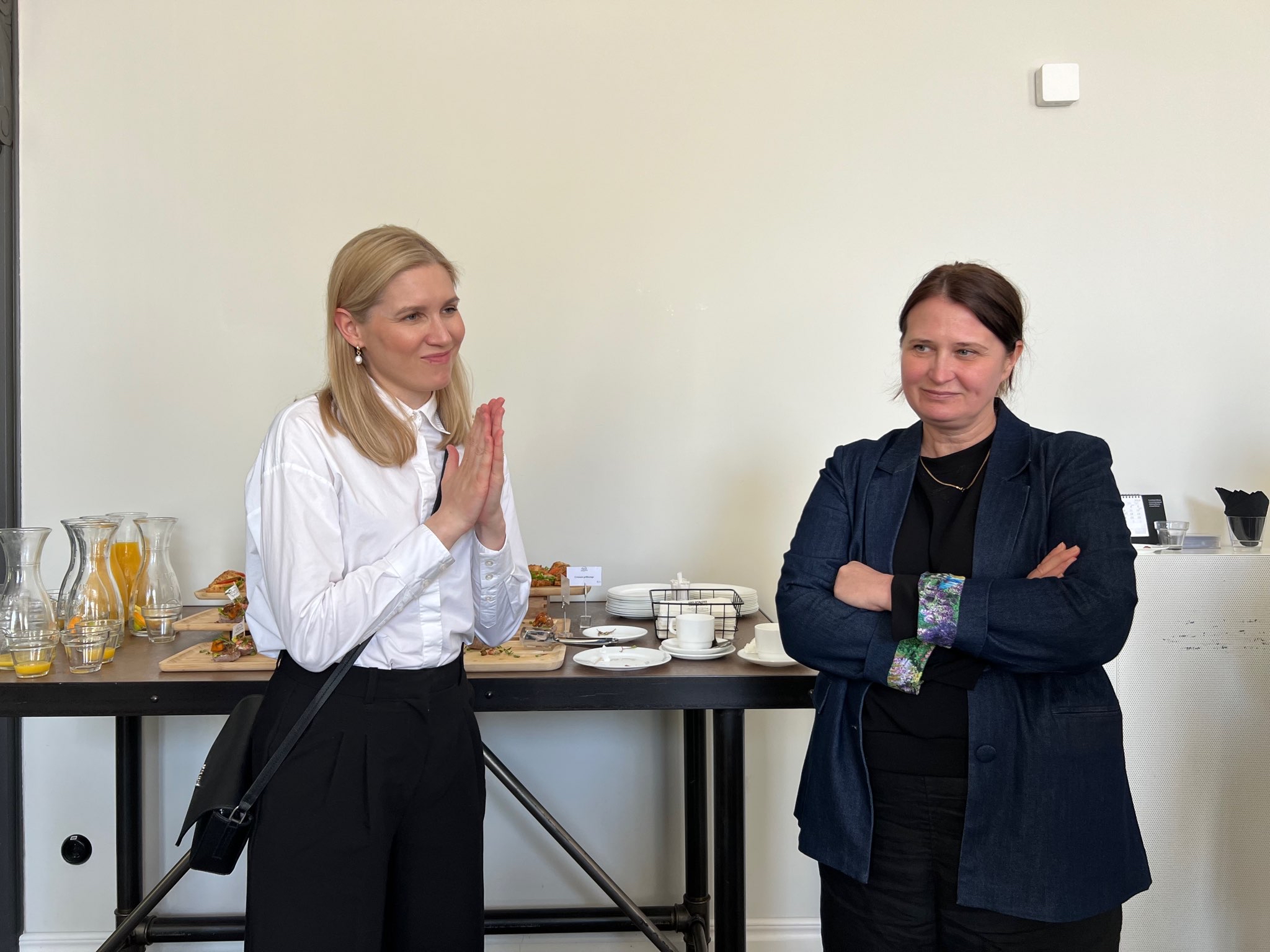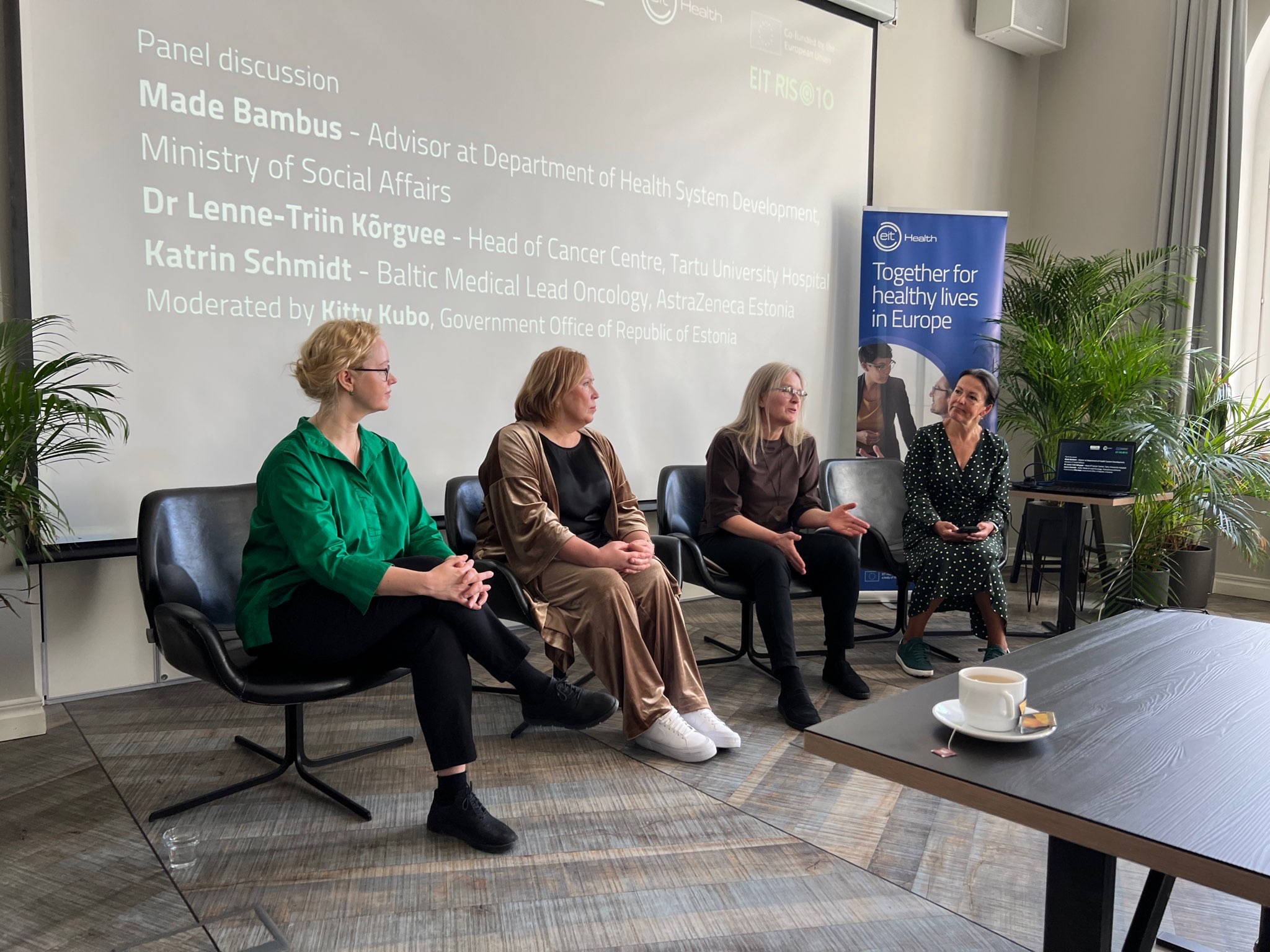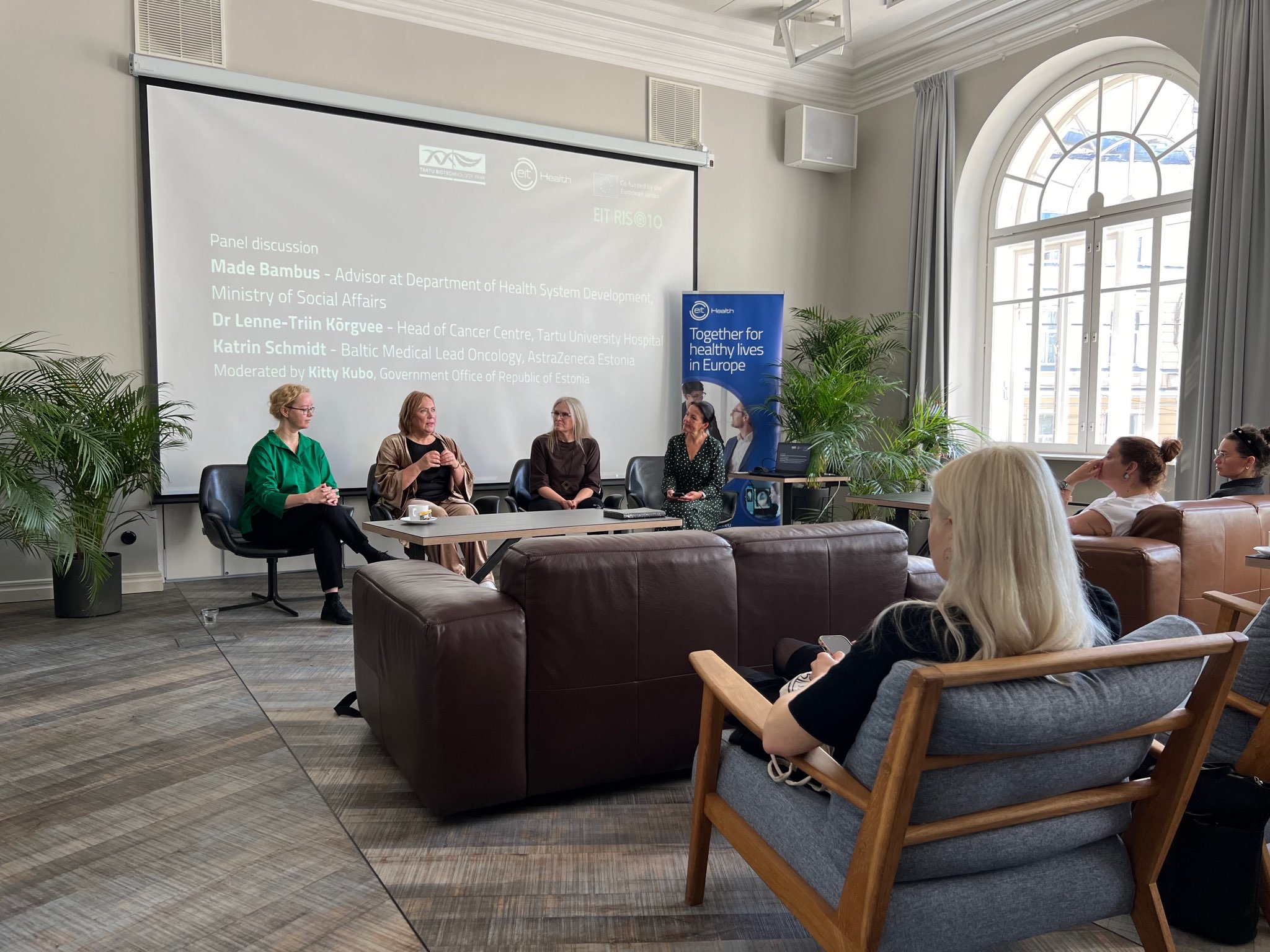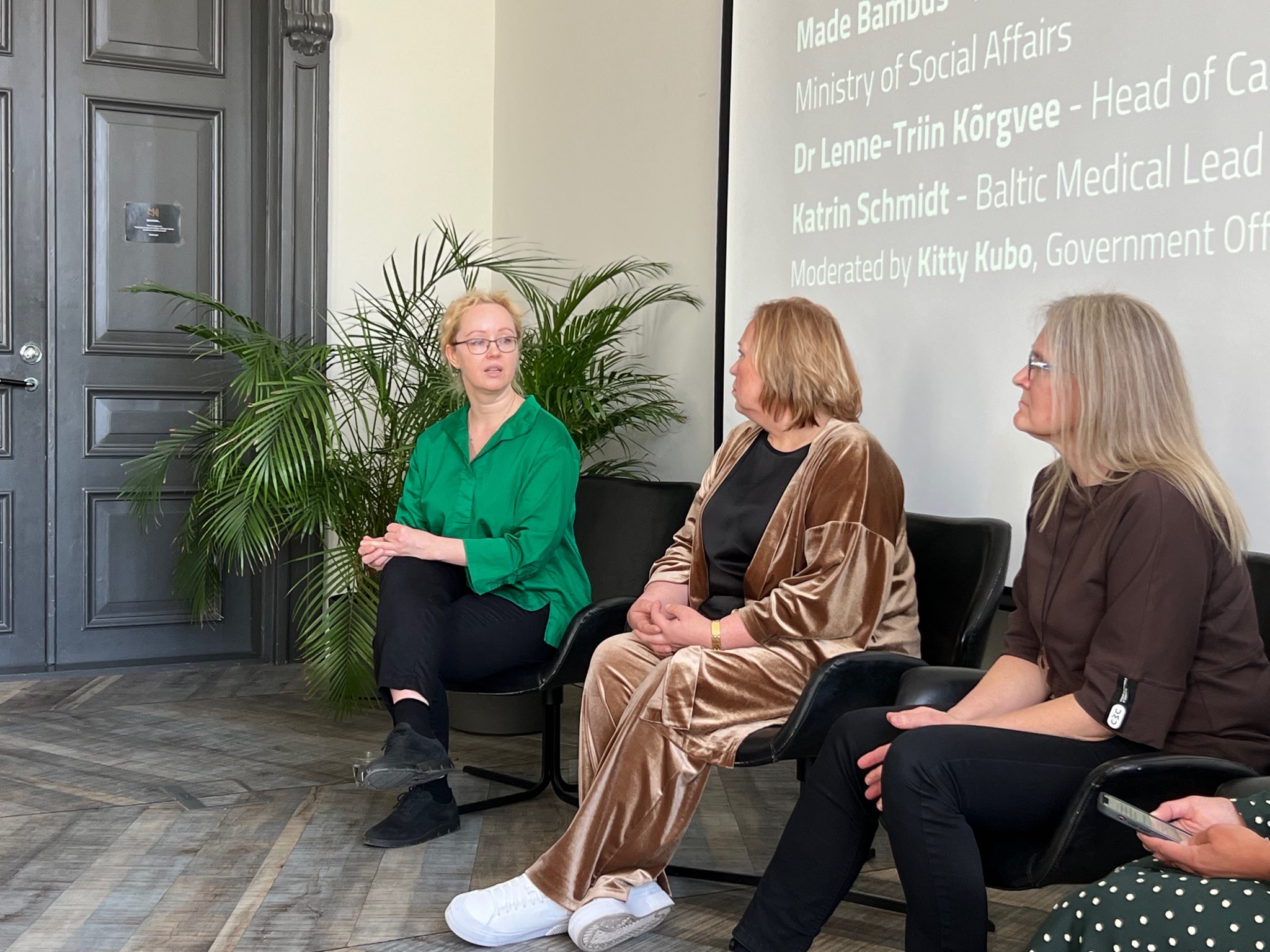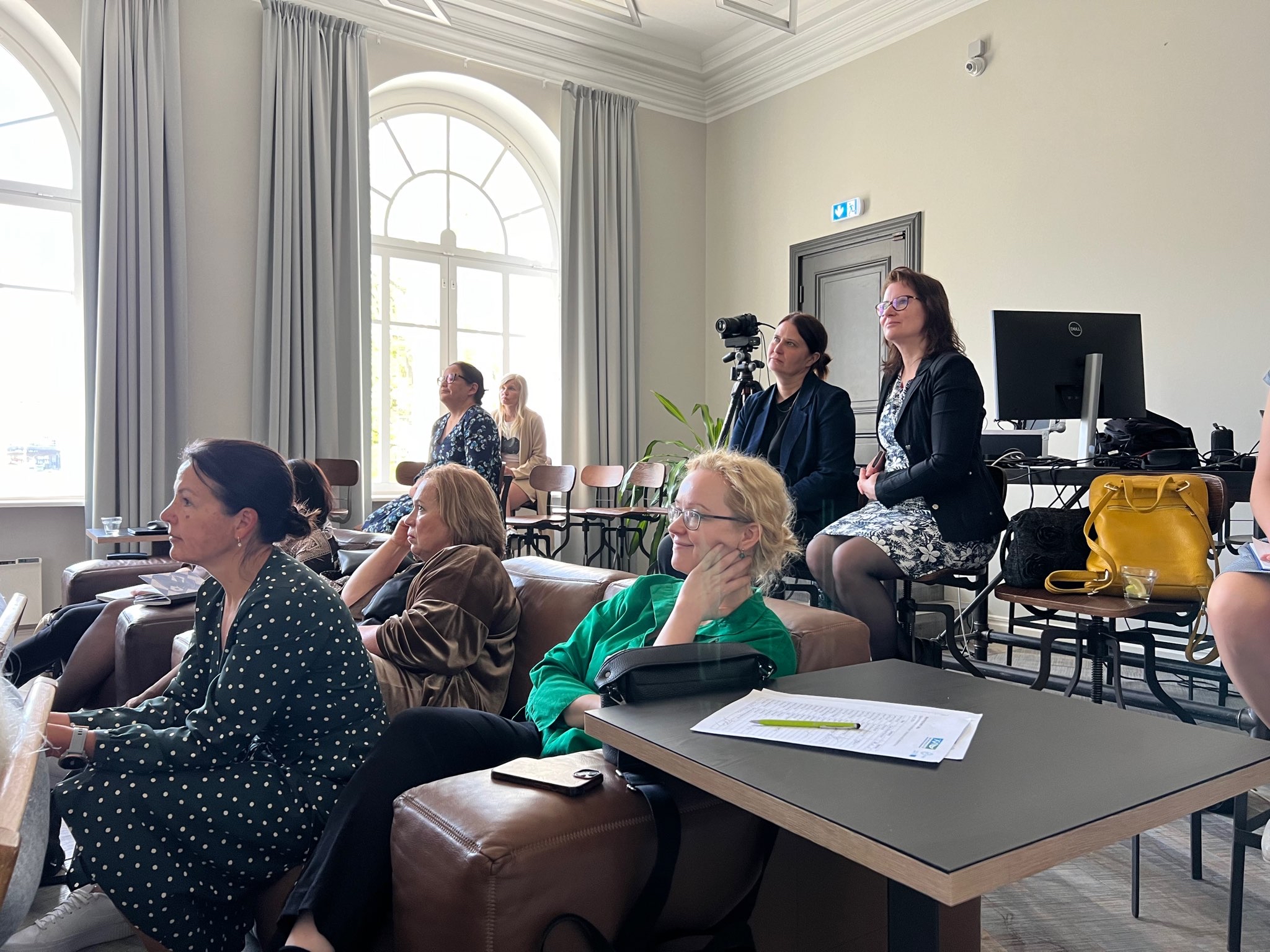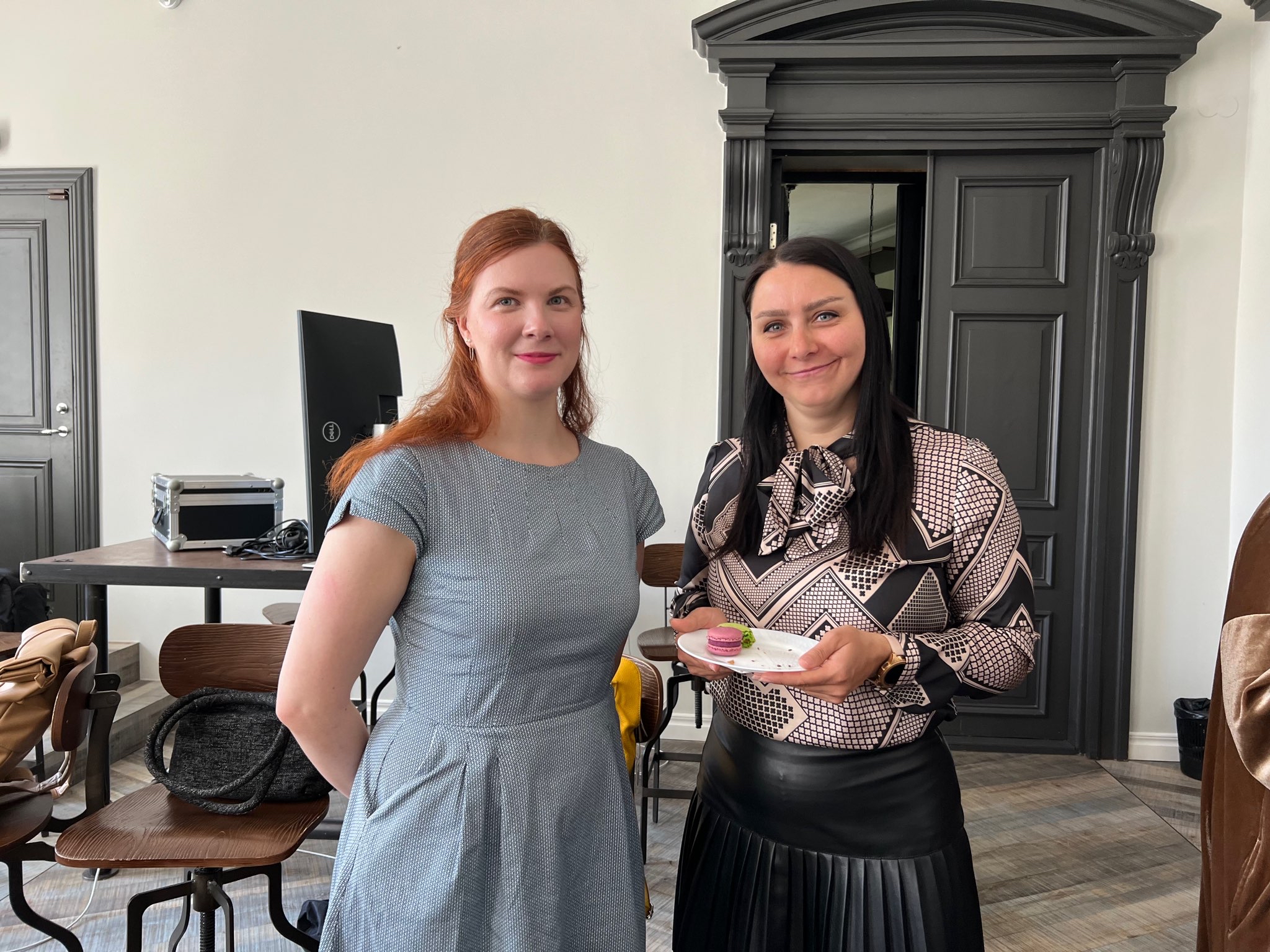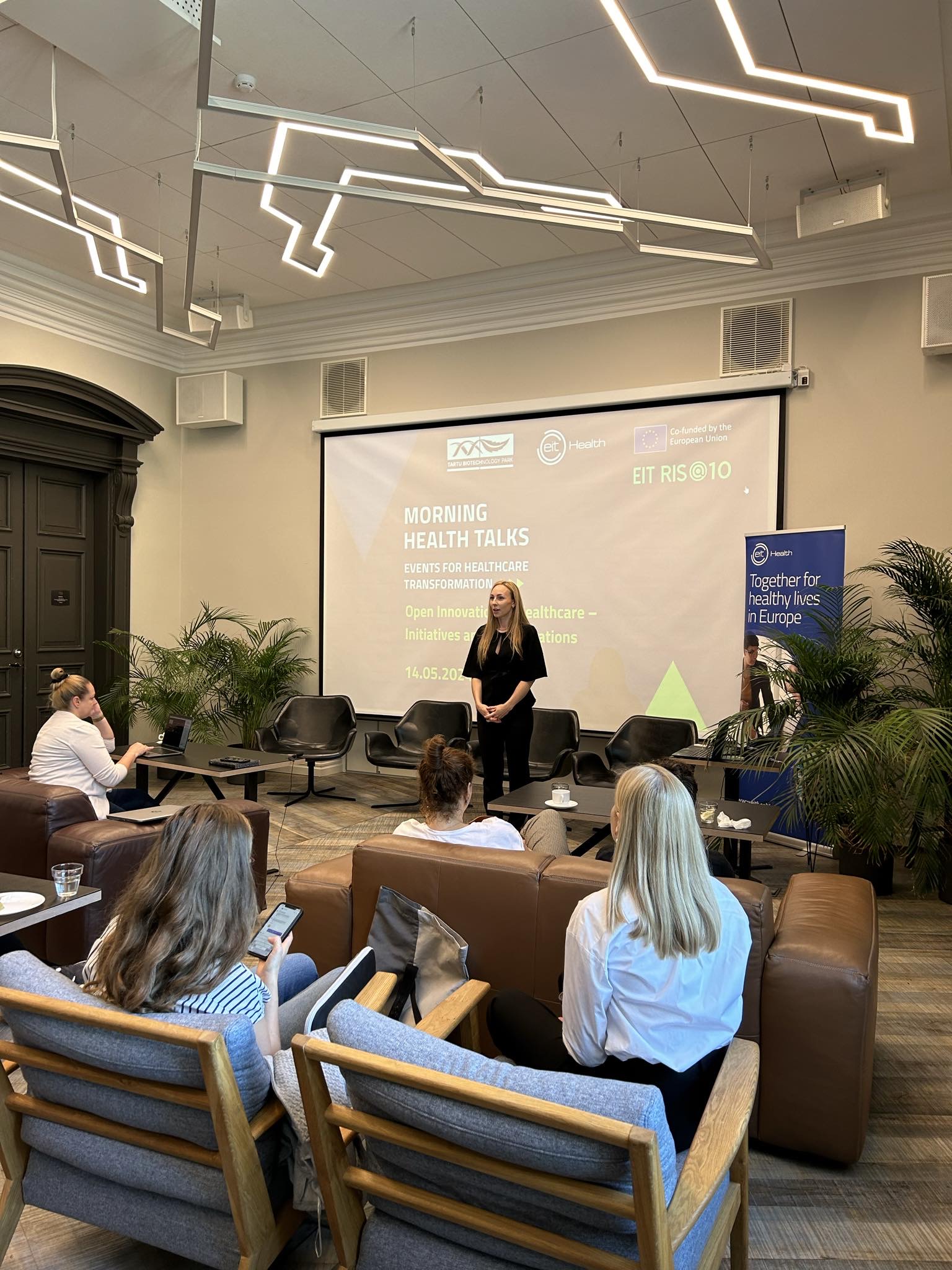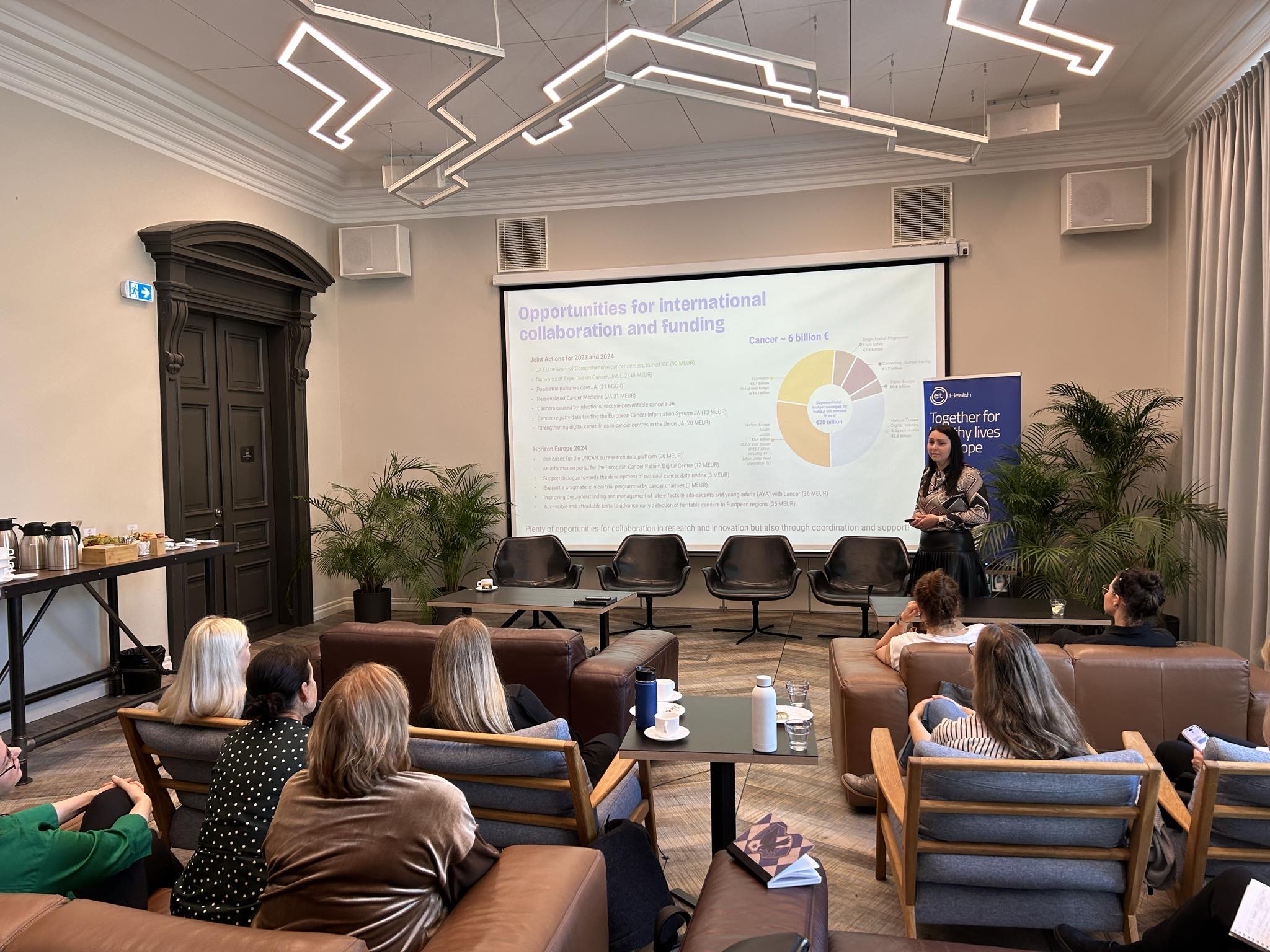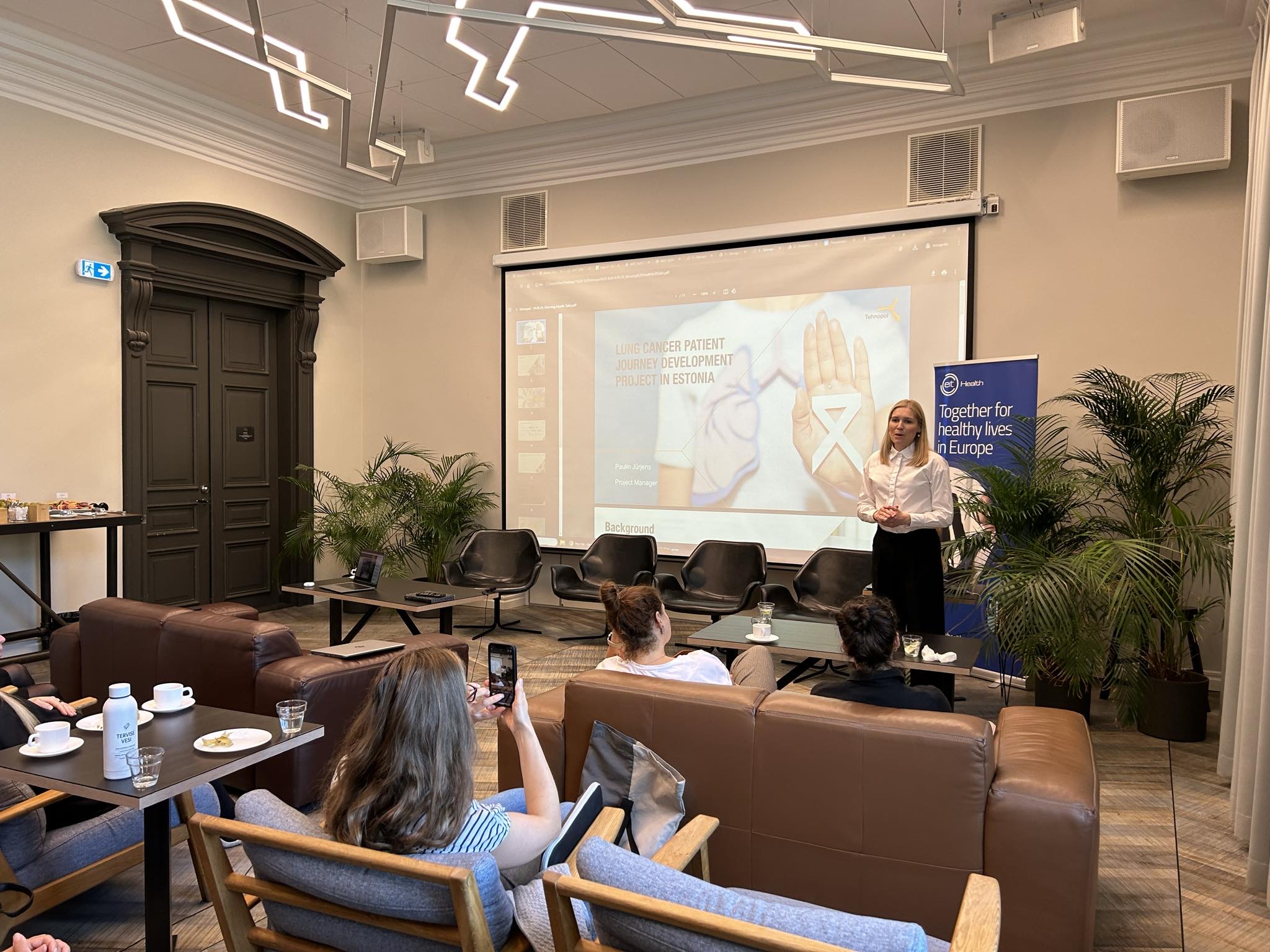Open Innovation in Healthcare – Initiatives and Collaborations – insights of Morning Health Talks 14.05.24
On 14th of May, Tartu Biotechnology Park held an event focusing on open innovation between private and public sector in healthcare in the format of Morning Health Talks within the program of EIT Health.
We were happy to welcome stakeholders from public and private sector creating collaborations together on a meaningful level to discuss the experiences and opportunities within the scope of ongoing and potential initiatives in oncology.
To start with, we learnt about the initiatives that have already found to be impactful despite how far along they are in their process towards reaching their goals. Furthermore, we delved into understanding what keeps us from creating the changes and implementing innovation engaging different stakeholders through open innovation collaborations.
Paulin Jürjens from Tehnopol shared their experience with the lung cancer patient pathway project, an open innovation initiative uniting Estonian Health Insurance Fund, Ministry of Social Affairs, AstraZeneca, Roche, Pfizer, MSD and hospitals (North Estonia Medical Centre, East Tallinn Central Hospital, Tartu University Hospital). The project aims to make patient journey more comprehensive and provide improved opportunities to cope with the illness, pinpoint where the problems are on this journey and also initiate finding solutions for these problems.
Within the project, The Ministry of Social Affairs is carrying out a database study including more than 1500 patients to look at the journey from 1 year before a patient gets the cancer diagnosis and 2 years after the diagnosis, understanding how the patient moves within the system. She highlighted that it is important to have a very shared understanding to better develop what should be done to make improvements that could be applicable in the system. It is better to think about the changes systematically if the problems are clearly defined.
There is a vision to enable the best prevention, cancer diagnosis and treatment for people living in Estonia through well-coordinated national and international cancer research and clinical collaboration by Estonian Cancer Centre, to be established in June 2024. The initiative is launched under Ministry of Social Affairs, led by the project manager Kadi-Liis Veiman. After the establishment, Estonian Cancer Centre will continue legally in different structure. Kadi-Liis says that the initiative is aligned with several European and Estonian initiatives and plans, which bring a lot of opportunities to learn from other member states, bring in experts and include additional funds.
Estonian Cancer Centres and the cancer centres in the region are impacted by the Eunet CCC, which aims at creating comprehensive cancer centre network. Through this network, the centres should be able to provide high quality cancer care to 90% of the European cancer patients, which is an ambitious goal. Eunet CCC (Comprehensive Cancer Centres) with 90MEUR of funding, lasts 4 years and its participants are from all member states (more than 250 participants) – a chance and resources for us for bringing high quality care for Estonian patients though Estonian Cancer Centre.
“I’d like to think of Estonian Cancer Center like a channel, where you have opportunities that are exchanged, making sure that we have unified interests, goals and international collaboration for wider impact,“ said Kadi-Liis. In addition to funding and expertise, it is crucial to raise the level of cancer research to implement the plan and equally important to ensure sustainability for the organisation in the later phase after the project.
As a vision-driven mission towards transforming cancer from a deadly to a curable or chronic disease, Vision Zero Cancer initiative from Sweden is an example of which the Estonian initiatives are eager to learn from. Ebba Hallersjö Hult, the Head of Vision Zero Cancer, agrees that to truly define the comprehensive cancer journey and involve patients, it is very important to collaborate and involve different partners.
“Today, we know that we have the technological means to detect earlier and treat more effectively – we know that we can transform cancer from being a deadly disease. Now we just have to implement it into routine care and that is of course easier said than done,” says Ebba. For succeeding, it is crucial to drive the change and implement it systematically.
Over the four years Vision Zero Cancer has started several initiatives and expanded through new collaborations with healthcare system in Sweden and internationally. This has only been possible through working with shared principles, which she described in detail. „Methodology and capacity building to deliver on the mission is where most of the time and funding goes to,“ expained Ebba about the importance of building a system that could expand into something more concrete and tangible for people’s health.
When asked what she would recommend for Estonians in our starting phase, Ebba addressed that it is essential to engage the people who are ready to explore working together in new ways and forward-looking, create a comfortable/safe space for stakeholders and bring in competence for innovation management and communication as there is a cultural situation, where everybody wants change, but nobody wants to make changes. She added that it is also important to invest into the process of getting research from implementation and find stable and sustainable funding.
The presentations were followed by a panel discussion moderated by Kitty Kubo (from Government Office of Republic of Estonia), asking the panelists about their thoughts on how to take action and make these open innovation initiatives actually reach their goals. Lenne-Triin Kõrgvee, Head of Cancer Centre at Tartu University Hospital, responded by acknowledging that everyone thinking of the changes that need to be worked on, need to take action on making the change. She emphasized that it is essential for Estonian Cancer Centre to work on triple helix model of innovation and involve clinicians work for better implementation. „When the mapping is done and journey defined, that is where the real work begins,“ she added.
„We cannot expect any new results doing things the same way as we have always been doing them,“ said Made Bambus, advisor at Department of Health System Development, Ministry of Social Affairs, and explained that with establishing Estonian Cancer Centre, they are learning as they go like riding a train while still building the tracks. She is hopeful that the platform will help stakeholders to develop in collaboration. She said that this cannot be done without change management and effective communication. While being concerned that without science innovation the goals are difficult to achieve, she was hopeful that we are already making a step forward towards succeeding.
Katrin Schmidt, Baltic Medical Lead Oncology at AstraZeneca Estonia, was very clear that the system needs to change and we should be working on the goal towards bringing the best science to Estonian patients, supporting open innovation approach. The science research being conducted today is not involving Estonian patients into clinical studies enough and therefore we do not get as much benefit as the potential could be. When asked by Lenne-Triin about what the hospitals could do, Katrin said that the problem lies in the data. „Data need to be available for research. By asking statisticians, you can get part of the dataset, but for making high-level decisions, it is important to know have thoroughly structured health data that can be analyzed and that has passed all GDPR requirements in accordance with the conditions,“ she explained.
Open innovation initiatives in healthcare are somewhat new and there are no specific guidelines on how to make them successful, but it is important that we have clear definitions of problems and goals, we unite stakeholders for sharing experience and bringing in additional expertise, mapping the needs together and making systematic changes that have a positive impact on people’s health.

